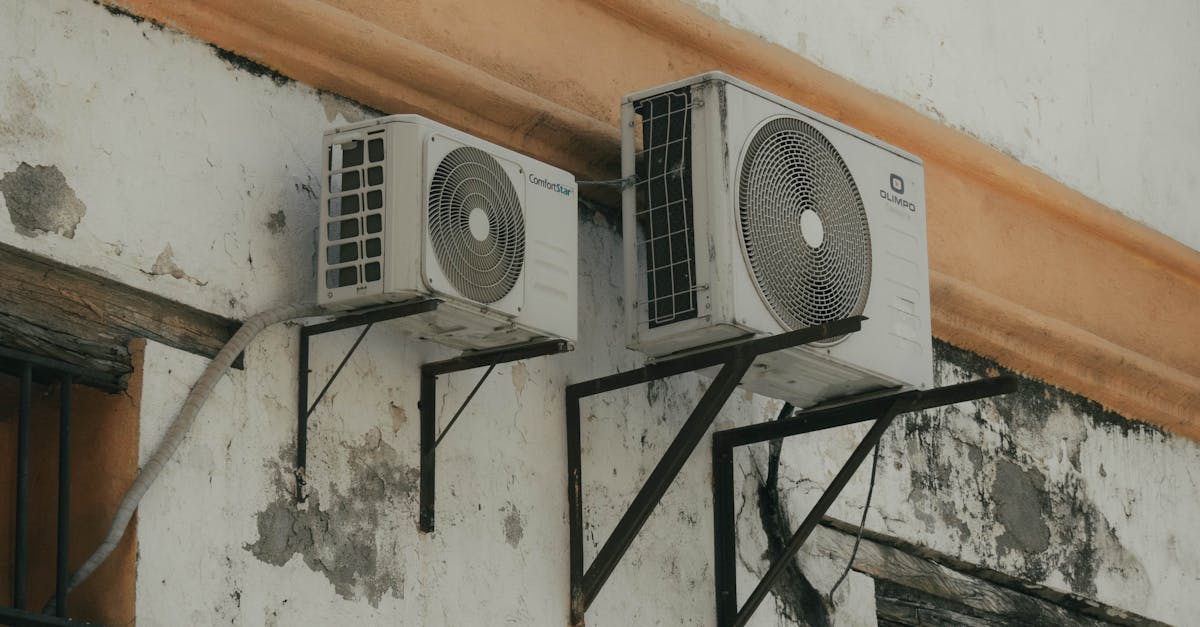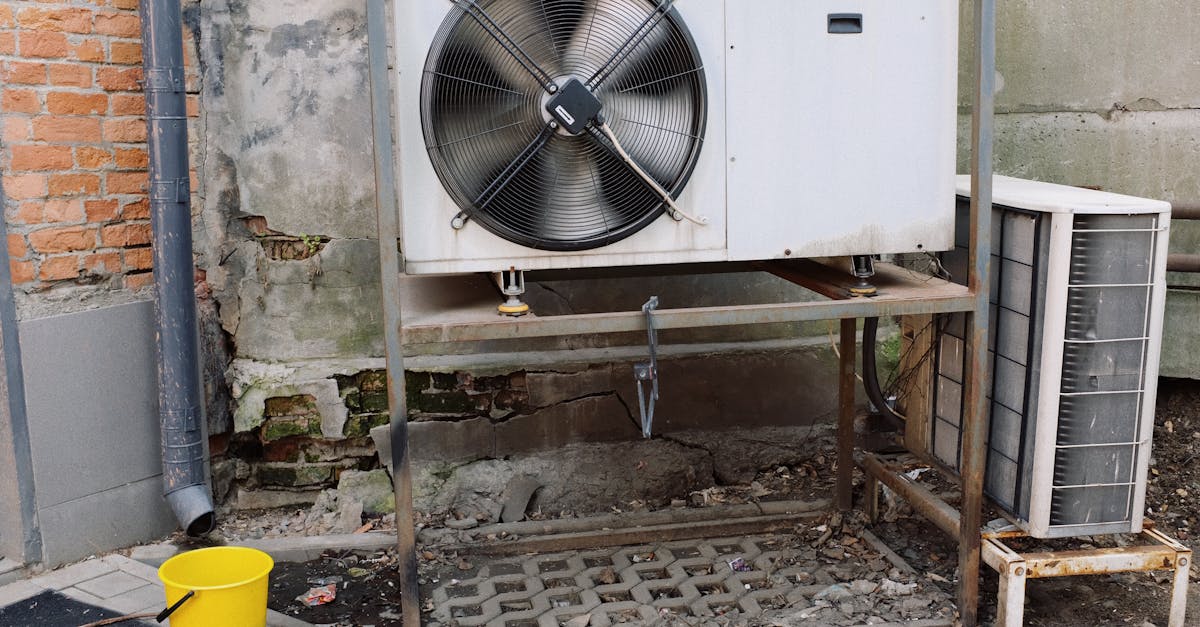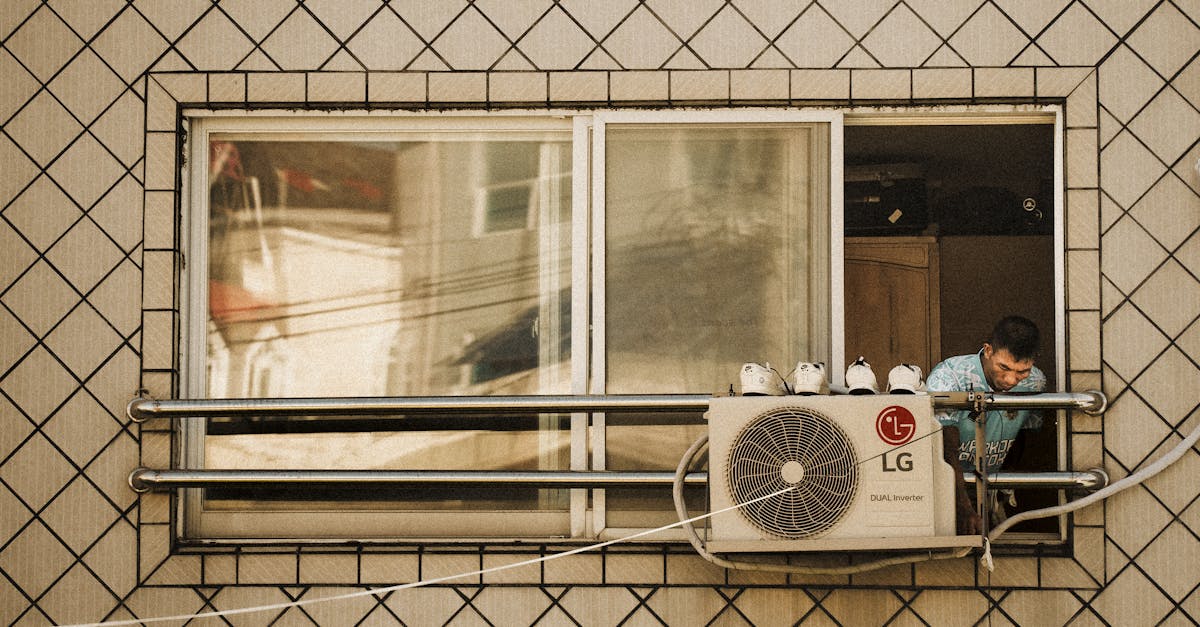
Table Of Contents
Cost Considerations for Installation
When considering the cost of installing water-cooled air conditioning, several factors come into play. The initial investment is generally higher compared to traditional air conditioning systems. This is due to the complexity of installation and the need for a water source. For instance, in areas like Walsall, West Midlands, where such systems may not be as common, the availability of skilled installers can add to the expenses, as can the necessary plumbing works.
Ongoing maintenance costs should also be taken into account. Water-cooled systems require regular checks to ensure that water quality is maintained and that there are no leaks or inefficiencies. This necessity can lead to increased operational costs over time. While some may find water cooled air conditioning in Walsall, West Midlands, a suitable option for efficiency, planning for both initial and ongoing expenses is vital for an informed decision.
Initial and Ongoing Expenses
The initial investment in water-cooled air conditioning systems can be significantly higher compared to traditional air conditioning units. Installation costs can vary depending on the complexity of the system and the specific site requirements. Homeowners in regions like Walsall, West Midlands, should anticipate additional expenses for plumbing and water source connections, which are essential components of the system. It is crucial to evaluate these costs alongside the expected efficiency benefits over time.
Ongoing expenses associated with water-cooled systems mainly revolve around water supply and maintenance. Regular servicing is necessary to ensure optimal performance, including checking for potential leaks and maintaining the cooling tower. Although water-cooled systems often boast lower energy consumption rates, they do require a steady supply of water, which can lead to fluctuating costs based on local rates. Residents in Walsall, West Midlands, must weigh these ongoing expenses against the system’s advantages to determine its viability for their specific needs.
Environmental Impact of Water-Cooled Air Conditioning
Water-cooled air conditioning systems offer an alternative to traditional air conditioning methods, but their environmental implications merit careful consideration. In regions like Walsall, West Midlands, where water resources may be limited, the consumption required for these systems can raise concerns. These air conditioning units depend upon water to dissipate heat, which can lead to significant water usage. If communities do not have a plentiful supply of water or face drought conditions, the strain on local water reserves can become a pressing issue.
Sustainability is also a vital aspect when evaluating the environmental impact of water-cooled air conditioning. While they may be more energy-efficient compared to some air-cooled systems, the ecological footprint of sourcing, treating, and using water for cooling must not be overlooked. Moreover, the deployment of these systems could potentially lead to increased temperatures in local water bodies, affecting aquatic life. As urban areas in the West Midlands, including Walsall, seek to balance their cooling needs with environmental stewardship, nuanced assessments of resource consumption are essential for long-term sustainability.
Resource Consumption and Sustainability
Water-cooled air conditioning systems rely on a constant supply of water for their operation, making resource consumption an important consideration. In areas such as Coventry, West Midlands, where water availability can fluctuate, the sustainability of these systems can be called into question. Increased demand for water during hotter months may strain local resources, particularly in regions that are experiencing drought conditions. As the technology continues to evolve, efforts are being made to make these systems more efficient in their water use, yet potential issues surrounding resource depletion remain paramount.
Sustainability also hinges on the source of the water used in these systems. If the water is drawn from natural bodies, the ecological impact could be significant, disturbing local ecosystems and affecting wildlife. Water-cooled air conditioning installations in Coventry, West Midlands, might consider using reclaimed water or other sustainable sources to minimise their environmental footprint. Companies and homeowners need to weigh the benefits of effective cooling against the long-term implications on water resource management and consider how they can implement systems that promote sustainability.
Performance in Different Climate Conditions
Water-cooled air conditioning systems exhibit varying levels of effectiveness depending on the climate they operate in. In regions characterised by high temperatures and elevated humidity, these systems can be particularly beneficial. The cooling mechanism takes advantage of the evaporative process, which works efficiently in humid conditions. This aspect makes water-cooled units an attractive option for locations seeking reliable cooling solutions during peak summer months.
In contrast, areas with drier climates may not fully leverage the benefits of water-cooled systems. The lack of sufficient moisture in the air can diminish the evaporative cooling effect, leading to less satisfactory performance compared to traditional air conditioning systems. For those considering options like water cooled air conditioning Walsall, West Midlands, it's essential to evaluate local climate conditions to ensure optimal efficiency and comfort throughout the seasons.
Effectiveness in Hot and Humid Regions
Water-cooled air conditioning systems demonstrate notable effectiveness in hot and humid regions. These systems leverage the natural cooling properties of water to reduce indoor temperatures, providing a refreshing respite from oppressive outdoor conditions. In areas characterised by high humidity, such as parts of the West Midlands, maintaining comfort becomes a critical concern. The ability of water-cooled units to manage moisture levels enhances indoor air quality while ensuring a comfortable environment for occupants.
In Walsall, West Midlands, where high humidity can often accompany heatwaves, water-cooled air conditioning can be particularly advantageous. The technology works efficiently by removing excess moisture from the air, preventing the sticky, uncomfortable feeling often associated with hot, muggy days. As these systems focus not just on lowering temperature but also on dehumidifying, they offer a comprehensive solution for residents and businesses seeking comfort in challenging weather conditions.
FAQS
What are water-cooled air conditioners?
Water-cooled air conditioners use water as a cooling medium to dissipate heat from the refrigerant, as opposed to air-cooled systems that rely on air for cooling.
How do water-cooled air conditioners work?
These systems circulate water to absorb heat from the refrigerant, which then cools the air in the space. The heated water is subsequently cooled again, often using a cooling tower or another method.
Are water-cooled air conditioners more energy-efficient than traditional systems?
Generally, water-cooled air conditioners can be more energy-efficient in certain climates, especially in hot and humid regions, because they can maintain lower operational temperatures than air-cooled systems.
What are the main costs associated with installing a water-cooled air conditioner?
The main costs include the initial purchase and installation of the unit, as well as ongoing expenses such as water usage, maintenance, and potential water treatment to prevent scaling or algae growth.
Do water-cooled air conditioners have a significant environmental impact?
While they can be more efficient, water-cooled systems require a substantial amount of water, which can raise concerns about resource consumption, especially in areas where water is scarce.


